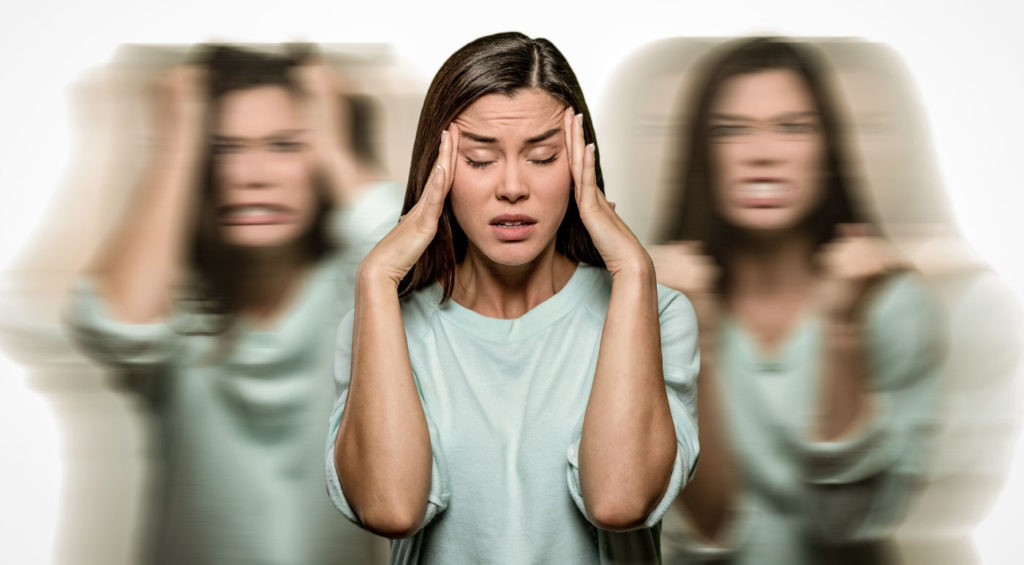
If you have schizophrenia, or have a friend or family member with the condition, you know how much it can impact a person’s quality of life. There is a stigma around schizophrenia. And the truth is, we need better therapies to help people with the condition manage their symptoms and regain their lives.
Researchers have proposed that CBD, also known as cannabidiol, may be useful in managing the symptoms of schizophrenia. That proposition has led many to consider whether a person with schizophrenia can use CBD for their condition and, if so, where to find the best CBD products on the market that are high quality and safe to use. But before we get to that, we want to get a few facts straight.
Table of Contents
- CBD for Schizophrenia: Just the Facts
- Understanding Cannabis and CBD: Marijuana vs. Hemp
- What is Schizophrenia?
- What Causes Schizophrenia?
- Conventional Approach to Schizophrenia
- What We Know About CBD for Schizophrenia
- What the Research Says About CBD for Schizophrenia
- How Can CBD Help with Schizophrenia?
- A Summary of What the Research Says
- Final Thoughts on Using CBD for Schizophrenia
CBD for Schizophrenia: Just the Facts
Schizophrenia is a serious mental health disorder that causes a mix of what they call “positive symptoms” and “negative symptoms” like hallucinations and flat affect (more on that in a little bit). Antipsychotic medications are the primary treatment approach; however, they cause weight gain and other side effects and do not address negative symptoms at all.
Emerging research has found that CBD can reduce both positive and negative symptoms of schizophrenia for some people, and it can do so with very few side effects. More research is needed, but the outlook is good for using CBD for schizophrenia in the future.
Understanding Cannabis and CBD: Marijuana vs. Hemp
It has been documented that smoking cannabis can cause psychotic symptoms in healthy people. And repeated cannabis use is associated with an increased risk of developing schizophrenia for some people. So how could the same plant that may increase the risk of developing psychotic symptoms and schizophrenia also be a possible therapy for schizophrenia?
The answer to this question requires us to take a more in-depth look at the cannabis plant itself.
First, it’s crucial to understand that the word “cannabis” actually describes a family of plants. This means there are different plants within this plant family. Two of these strains are the marijuana plant and the industrial hemp plant. Although they come from the same family, there are critical differences between the two plants—and those differences impact their effects on the brain and body. CBD oil, which is used in CBD products, is not derived from the marijuana plant; it’s extracted from the industrial hemp plant.
This brings us to our second point—the plants’ composition. Cannabis plants contain hundreds of different active compounds known as phytocannabinoids. Two of these active compounds are CBD (cannabidiol) and THC (tetrahydrocannabinol).
THC is the psychoactive component that’s found in high amounts in the marijuana plant, and it’s the feature of the plant that’s responsible for creating psychotic symptoms in some people. The industrial hemp plant contains only trace amounts of THC, and it’s high in CBD—which does not have any psychoactive effects.
CBD products are purified and must contain less than 0.3% THC to be sold in the United States. This amount of THC will not cause a person to feel “high,” nor does it increase the risk of developing schizophrenia or psychotic symptoms. Side effects of CBD are generally very mild and may include fatigue, diarrhea, and nausea.
What is Schizophrenia?

Schizophrenia is a serious mental health disorder that affects the way a person thinks, behaves, and perceives the world. Some people with schizophrenia act as though they are living in a different reality than the one everyone else is.
Although every person experiences a combination of different symptoms with different severity levels, there are three general sets of symptoms: positive, negative, and cognitive.
Positive Symptoms Include:
- Audio and/or visual hallucinations (such as hearing voices or seeing things that aren’t there)
- Delusions (false beliefs such as having direct contact with God)
- Abnormal, typically agitated, body movements
- Abnormal thinking patterns
Negative Symptoms Include:
- Difficulty moving or engaging in activities (sometimes called catatonia)
- A flat affect (seeming to be emotionally dulled)
- Depressed mood
- Limited speaking
Cognitive Symptoms Include:
- Difficulty paying attention or focusing
- Not being able to use information right after learning it
- Poor ability to use information they’ve learned to make decisions
People with schizophrenia may have other symptoms such as anxiety, difficulty forming relationships, and trouble keeping a job due to the impact of their thoughts and behaviors. Some may also suffer from memory issues or a decreased ability to learn and make decisions.
Danielle from Ohio describes her experience of schizophrenia like this:
“Maintaining friendships can be very complicated, and romantic relationships even harder. Since I’m quite emotionally detached, maintaining a romantic relationship with someone who doesn’t quite understand me can be hard. They tend to think I don’t care enough about them, when I just have a hard time showing that affection. I don’t talk much, and when I do I tend to be very repetitive with my words; I keep to myself, so others may become distant because of that. I’m very detached from others around me, even my own family. Most of my family will hug or nudge each other around playfully — they have this sort of physical connection with each other. I do not. I don’t really hug my family. I don’t even touch them; I just don’t feel that connection.”
Danielle from Ohio
What Causes Schizophrenia?
The short answer is: No one really knows. Some believe that there can be genetic links as well as environmental factors like viruses, malnutrition, or family dynamic issues. As previously mentioned, repeated exposure to THC found in marijuana is also associated with the onset of schizophrenia in some people.
Conventional Approach to Schizophrenia

The main medications used in schizophrenia are classified as antipsychotics. These medications work by reducing the amount of dopamine in the brain. Too much dopamine is thought to cause psychotic symptoms.
The downside to these medications is their severe side effects, which include movement disorders and weight gain.
Movement Disorders
These drugs are known to cause a condition called tardive dyskinesia (TD). TD causes uncontrollable twitching of the face and body, which often does not go away even if the medication is stopped!
Weight Gain
The majority of people on antipsychotics experience weight gain as well as higher blood sugar and blood pressure. These side effects can be detrimental to other areas of health, such as cardiovascular health and self-esteem.
Other side effects include constipation, sexual dysfunction, dry mouth, blurred vision, and restlessness.
Unfortunately, antipsychotic medications are not effective for negative symptoms. Without addressing these symptoms, a person may still suffer from issues with relationships, mood, and holding down a job.
Novel approaches to schizophrenia are needed, and the high incidence of side effects such as weight gain and movement disorders calls for more effective therapies with fewer side effects.
What We Know About CBD for Schizophrenia

Unlike THC, which is known to cause psychotic symptoms in some people, CBD can protect against psychotic symptoms that are induced by THC. Researchers found that giving study participants CBD before they used cannabis containing THC reduced the number of psychotic symptoms that were experienced.
Scientists have begun to study how CBD affects schizophrenia in both animal and human studies.
What the Research Says About CBD for Schizophrenia
Animal Studies
Although schizophrenic symptoms are challenging to study in animals, researchers have looked at various aspects of mental health symptoms that are seen in schizophrenia.
Animal studies have found that CBD can often help reduce abnormal social behavior as well as anxiety, both of which are seen often in schizophrenia patients.
Human Studies
There have been a few human studies on the use of CBD for schizophrenia—some of which were very recent and are still being peer-reviewed before they can be published.
A double-blind, randomized clinical trial of CBD in acute schizophrenia found that it was just as effective as a traditional antipsychotic in reducing both positive and negative schizophrenic symptoms, but did not cause the numerous adverse side effects that the antipsychotic medication did.
This study also found that CBD increased the amount of anandamide (also known as the “bliss molecule”) in the participants. Scientists believe that CBD’s effect on anandamide is how it reduces psychotic symptoms.
How Can CBD Help with Schizophrenia?
We are still not entirely sure how CBD affects psychotic symptoms; however, it is likely due to different mechanisms than traditional antipsychotic drugs.
Most antipsychotic medications are geared at reducing dopamine levels, as high levels of dopamine have been associated with hallucinations and other psychotic symptoms seen in schizophrenia. However, CBD does not seem to affect dopamine levels.
Increasing Anandamide
There are a few theories on how CBD may help with schizophrenia. The first is that CBD inhibits the breakdown of anandamide. Researchers have found that people with both bipolar and schizophrenia have lower levels of this molecule in their spinal fluid. They also found that the levels correlate with the likelihood of developing a mental health disorder, including schizophrenia.
Serotonin Receptors
Another theory is that CBD stimulates 5-HTP receptors, which are typically mediated by serotonin. Some researchers believe that stimulating these receptors may help with the negative symptoms of schizophrenia. Many antidepressant drugs target serotonin.
PPARγ and Glycine Receptors
A third theory is that CBD affects PPARγ receptors and glycine receptors, which decrease inflammation and therefore, the disruption of critical neurological processes. Inflammation can cause changes in how the brain functions and communicates. This theory suggests that by reducing inflammation, CBD helps normalize brain functionality.
In summary, researchers are beginning to understand the different ways CBD may affect the brain, but they are still in the discovery phase.
A Summary of What the Research Says

There have been a few human studies on CBD for schizophrenia, and more are underway.
Clinical studies have found that CBD can reduce both positive and negative schizophrenic symptoms for some people with very few side effects.
Animal studies have found that CBD can decrease anxiety and abnormal social behavior.
Theories on how CBD may work to help manage schizophrenia symptoms for some people include: increasing anandamide, stimulating 5-HTP receptors, and decreasing inflammation through PPARγ and glycine receptors.
Final Thoughts on Using CBD for Schizophrenia
Research studies have been successful in reducing schizophrenic symptoms in many participants, and what’s more, CBD has far fewer side effects than traditional antipsychotic medications. CBD may very well have a place in managing schizophrenic symptoms; however, researchers still have their work cut out for them to uncover the exact mechanism of how CBD works for schizophrenia and how to best utilize it.
Keep in mind that schizophrenia is a serious health condition, and any and all changes to medications and supplements should only be made by a licensed healthcare professional. If you are interested in trying CBD for schizophrenia, talk with your doctor first.
And if you get the go ahead, you can then look at the wide variety of CBD products, from vaping oils to gummy bears or capsules, to find what may work best for you.
